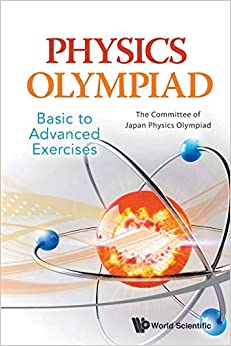Question
PART II -- RENEWABLE ENERGY A. Fuel Cells 1. https://www.energy.gov/sites/prod/files/2015/11/f27/fcto_fuel_cells_fact_sheet.pdf ___ are the most energy efficient devices for extracting power from fuels. Our transportationincluding
PART II -- RENEWABLE ENERGY
A. Fuel Cells
1. https://www.energy.gov/sites/prod/files/2015/11/f27/fcto_fuel_cells_fact_sheet.pdf
"___ are the most energy efficient devices for extracting power from fuels."
"Our transportationincluding personal___,___,___, marine vessels, and other specialty vehicles such as lift trucks and ground support equipment, as well as auxiliary power units for traditional transportation technologiescan be powered by___."
"Fuel cells can power almost any portable application that typically uses batteries, from___ to portable___."
"Fuel cells directly convert the___ energy in___ to___, with___and potentially useful___ as the only byproducts. Hydrogen-powered fuel cells are not only pollution-free, but they can also have more than two times the efficiency of traditional combustion technologies."
"The gasoline engine in today's typical car is less than___% efficient in converting the chemical energy in gasoline into power that moves the vehicle, under normal driving conditions. Fuel cell vehicles, which use electric motors, are much more energy efficient. The fuel cell system can use___% of the fuel's energycorresponding to more than a___% reduction in fuel consumption compared to a conventional vehicle with a gasoline internal combustion engine."
2. https://www.energy.gov/eere/fuelcells/hydrogen-production
Hydrogen "is an______, not an energy source. Hydrogen can___and___usable energy."
[skip]
"Hydrogen can be produced... using diverse, domestic resources - including fossil fuels, such as___and___, coupled with carbon capture and storage; through splitting of water using___and renewable energy sources, such as___, ___, ___,and___power; and from___through biological processes."
[skip]
"The overall challenge to hydrogen production is___.
3. https://www.fueleconomy.gov/feg/fcv_benefits.shtml
Scroll down to the section titled "Challenges". List the four (4) challenges for fuel cell vehicles presented here:
- ___
- ___
- ___
- ___
Under "durability", it says fuel cell durability is now up to___miles, but must achieve___mile lifetime.
4. https://en.wikipedia.org/wiki/Fuel_cell#Theoretical_maximum_efficiency
"According to the U.S. Department of Energy, fuel cells are generally between___% energy efficient.This is higher than some other systems for energy generation. For example, the typical internal combustion engine of a car is about___% energy efficient."
Fuel cell vehicles already on the market or coming soon:
Car:https://www.toyota.com/mirai/
Car:https://www.hyundaiusa.com/us/en/vehicles/nexo
SUV:https://hondanews.com/en-US/releases/honda-to-begin-us-production-of-fuel-cell-electric-vehicles-in-2024
Pickup:https://newsroom.toyota.eu/development-starts-on-prototype-hydrogen-fuel-cell-toyota-hilux/
(^^This one is starting in the U.K., but may be in the U.S. before long.^^)
Large trucks:https://pressroom.toyota.com/trucking-world-endorses-toyotas-hydrogen-powered-fuel-cells-as-a-step-toward-a-cleaner-planet/
B. Nuclear Energy https://www.energy.gov/ne/articles/3-advanced-reactor-systems-watch-2030
"The U.S. Department of Energy and its national labs are supporting research and development on a wide range of new advanced reactor technologies that could be a game-changer for the nuclear industry. These innovative systems are expected to be___,___ and more___ than previous generations."
List the 3 new designs mentioned in this article:
- ___
- ___
- ___
**Note that 2 of these specifically mention their ability to produce hydrogen fuel cheaply**
**Note #2: Nuclear energy is actually the cheapest, safest, and cleanest energy source available today**
**Note #3: The absolute best source of energy is nuclear fusion - which is getting closer to reality!**
C. Biodiesel
1. https://afdc.energy.gov/fuels/biodiesel.html
"Biodiesel is domestically produced,___ that can be manufactured from___,___, or recycled___for use in diesel vehicles or any equipment that operates on diesel fuel. Biodiesel's physical properties are___ to those of petroleum diesel."
2. https://www.energy.gov/eere/bioenergy/bioenergy-basics
"Bioenergy... is a form of___ energy that is derived from___organic materials known as___, which can be used to produce transportation___,___,___, and products."
Skip down to the section titled "biomass: a renewable energy resource". List any 4 of the sources of biomass energy listed in this section.
a.___ b.___ c.___ d.___
D. Geothermal Energy https://www.energy.gov/eere/geothermal/geothermal-basics
"Geothermal resources are reservoirs of___that exist at varying temperatures and depths below the___surface. Wells, ranging from a few feet to several___deep, can be drilled into underground reservoirs to tap___and very hot___that can be brought to the surface for use in a variety of applications, including___generation, direct use, and___and___. In the United States, most geothermal reservoirs are located in the___states."
List the 5 benefits described here:
- ___
- ___
- "...running ___hours per day / ___days per week, regardless of weather conditions."
- ___
- ___
- ___
E. Electric Vehicles
https://www.forbes.com/sites/uhenergy/2017/05/08/charging-networks-new-models-environmental-awareness-keys-to-electric-car-growth/#42df9cf100c6
(While this article is from 2017, the points it raises are still valid today.)
Scroll down to the list of practical factors that are "key to electric vehicle adoption". Write down thefirst 5 factors.
- ___
- ___
- ___
- ___
- ___
Contrary to what you hear from supporters of electric vehicles, EVs still have several concerning problems that keep them from being tGPH 215 -- LAB EXERCISE #15us disposal problem - let alone the serious environmental concerns about the mining required to produce those batteries.
[Continue on to PART III on the next page.....]
NOTE: Anthropogenic global warming is routinely abbreviated as "AGW"
KEY REFREANCE :-GPH 215 -- LAB EXERCISE #15
A. Fuel Cells
1. https://www.energy.gov/sites/prod/files/2015/11/f27/fcto_fuel_cells_fact_sheet.pdf
2. https://www.energy.gov/eere/fuelcells/hydrogen-production
3. https://www.fueleconomy.gov/feg/fcv_benefits.shtml
4. https://en.wikipedia.org/wiki/Fuel_cell#Theoretical_maximum_efficiency
B. Nuclear Energy
https://www.energy.gov/ne/articles/3-advanced-reactor-systems-watch-2030
C. Biodiesel
1. https://afdc.energy.gov/fuels/biodiesel.html
2. https://www.energy.gov/eere/bioenergy/bioenergy-basics
D. Geothermal Energy
https://www.energy.gov/eere/geothermal/geothermal-basics
E. Electric Vehicles
https://www.forbes.com/sites/uhenergy/2017/05/08/charging-networks-new-models-environmental-awareness-keys-to-electric-car-growth/#42df9cf100c6
(While this article is from 2017, the points it raises are still valid today.)
GPH 215 -- LAB EXERCISE #15
Step by Step Solution
There are 3 Steps involved in it
Step: 1

Get Instant Access to Expert-Tailored Solutions
See step-by-step solutions with expert insights and AI powered tools for academic success
Step: 2

Step: 3

Ace Your Homework with AI
Get the answers you need in no time with our AI-driven, step-by-step assistance
Get Started


